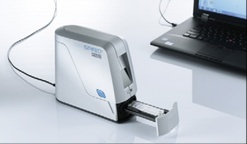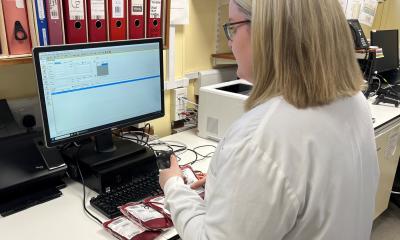System detects MRSA in less than 90 minutes
The GenSPEED Test System developed by Greiner Bio-One combines crude lysis of bacteria with multiplex-PCR before the final automated analysis of PCR-products in the new GenSPEED R2 device.

One specific test to run on this system is a DNA-based in-vitro diagnostic tool to detect MRSA within 75 minutes from human nasal and pharyngeal smears, targeting both resistance genes mecA and mecC, the company explains. Another is to rapidly identify toxigenic C. difficile by detecting genes for glutamate dehydrogenase (GDH), toxin A, toxin B and binary toxin in one step. The firm reports that this is achieved in less than 90 minutes. Greiner Bio-One also points out that this one-step procedure outdates the sequential diagnostic procedure (two-step method according to ESCMID-guidelines) that uses at least two different test systems, e.g. a GDH antigen assay followed by a toxin assay.
In general, the test system scores points for speed and high sensitivity at a reasonable price, says Greiner. ‘Analyses of individual samples are possible at any time. Three controls (for DNA amplification, hybridisation, as well as a negative control) on the Test Chip offer great reliability. The compact and maintenance free system was designed for optimal ease of use. Pre-filled reagents and the automated GenSPEED R2 device reduce the number of process steps to a minimum.’
03.07.2014





